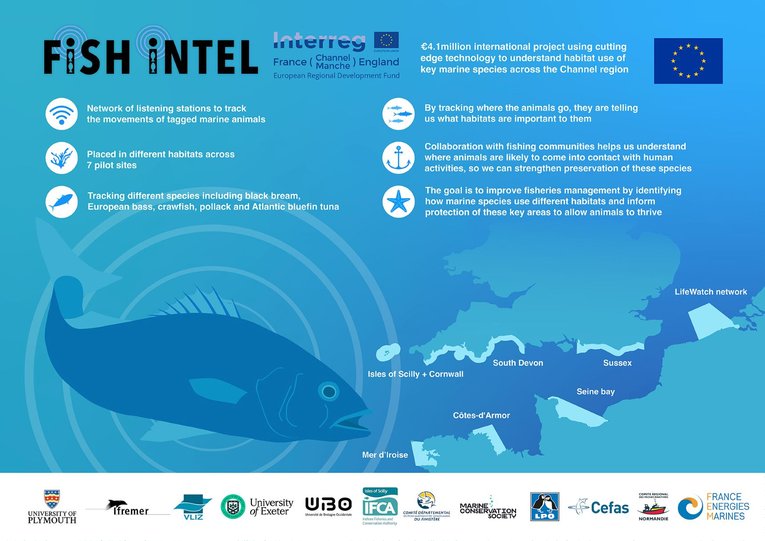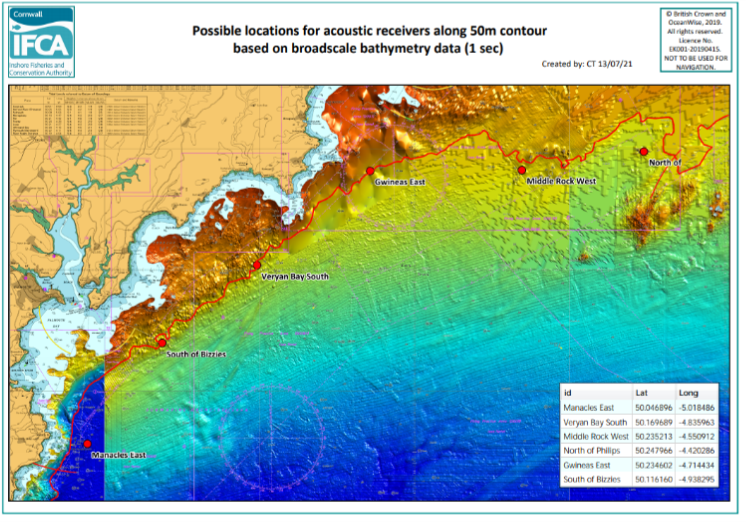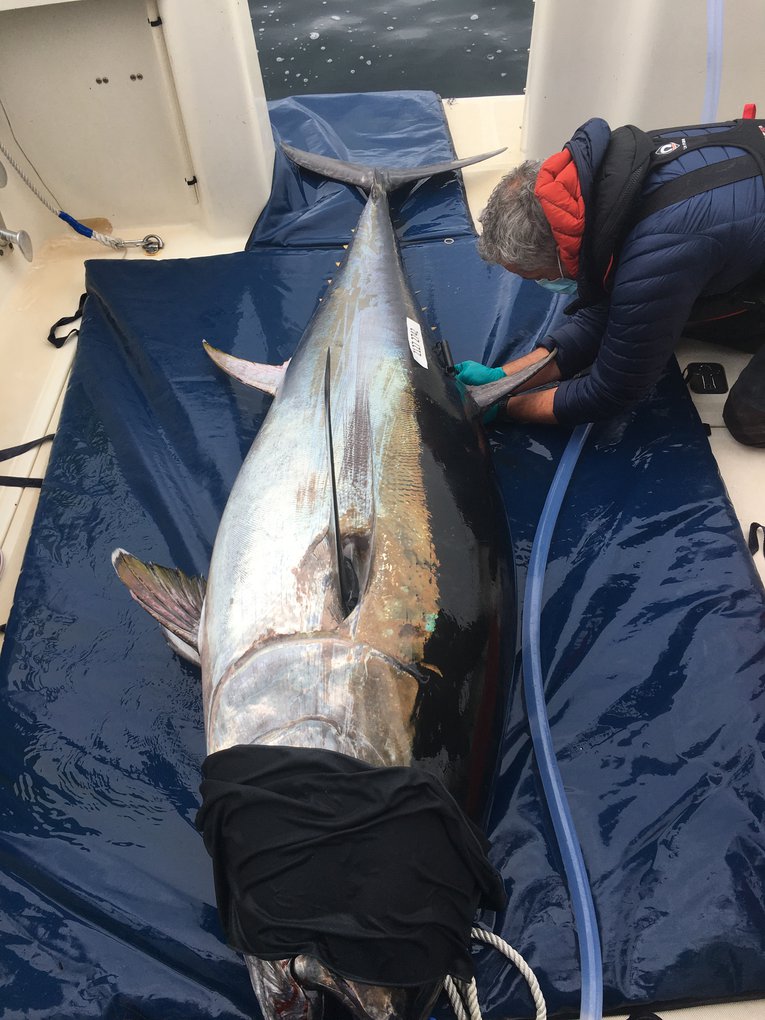
FISH INTEL project
We're working with 11 other partners on a major EU-funded project to learn more about fish behaviour.

Led by the University of Plymouth, FISH INTEL uses cutting edge technology to monitor key fish species and understand how they use different ecosystems within UK, French and Belgian seas.
By tracking fish movements and studying their habitats, we hope to build a comprehensive picture that will inform commercial fishing policies and help marine life to thrive.

Latest updates
Find out how the project is progressing and what our tagged fish are up to:
Which species are we monitoring?
Where is the project taking place?
The project will monitor fish movements in eight locations within the English Channel/Manche region.
England
Isles of Scillies (crawfish)
South Cornwall (bluefin tuna)
South Devon (bass and pollack)
Sussex (bass and pollack)
France
Mer D’Iroise (bass, pollack and crawfish)
Baie de St Brieuc (windfarms)
Baie de Seine (pollock and other)
Belgium
Offshore windfarms of Belgium (bass)

How does it work?
Pelagic or 'open-sea' species, such as bluefin tuna which are starting to appear in UK waters between July and September, require much wider international collaboration. These fish will be tagged using 'pop up archival tags' (PAT) and satellite tracking technology.
We produced a short FISH INTEL film, which illustrates the science and methods of the project, and the motivations behind the research
How the fish are tagged
Crawfish are collected by freedivers and by using trammel nets (a net with several layers, which the crawfish become trapped in).
Professional anglers are employed by the project to safely bring pollock up from deep water so their swim-bladders can adjust to the pressure change.
Tuna are caught using plastic squid-like lures at the end of lines. The huge fish (weighing up to 200kg) are then hauled into the fishing vessel as gently as possible so they can be tagged by scientists and quickly return to the water. Working with tuna is a skilled job and any project members handling these animals must have a government licence to ensure the animals are kept in good condition during the tagging process.
Servicing the equipment
Acoustic receivers (“listening stations”), which record the movement of tagged fish, should be serviced every four months to remove algal growth, to resecure the moorings and to download the data.
What does FISH INTEL aim to achieve?
The two-year project will give us an insight into which habitats individual fish species prefer, both within and outside of marine protected areas. We'll be looking at how fishing, climate change and other human activities (such as windfarms and mussel farms) are impacting on ecosystems within the Channel/Manche region.
The resulting data can then be shared with key stakeholders including fishers, regulators and policy-makers. We hope that our findings will lead to better cross-channel collaboration and improved marine management measures, such as recommended catch limits and seasonal restrictions.

Who else is involved?
FISH INTEL is a €4 million Interreg project involving UK, Belgian and French academic institutes, fisheries government scientists (including CEFAS in England, INFREMER in France) and regulators (Isles of Scilly Fisheries and Conservation Authority).
The project builds on work by the University of Exeter and the University of Plymouth and is part of much longer-term research into commercial fish and shellfish habitats.
What have we found so far?
We'll be reporting on the final results from Fish INTEL when the project ends in March 2023. In the meantime, we've already got some short-term insights about the migration routes, timing, and spatial extent of these migrations for various species:
Seabass:
- Seabass have swum between Devon and Belgian waters
- They move away from estuaries during strong rainfall events
- Estuaries are really important to seabass, meaning the role of MPAs in these areas can be considered for seabass from now on, particularly in saltmarsh and mudflat habitats.
Bluefin Tuna:
- Bluefin tuna seemed to stay around the Isles of Scilly longer than expected.
Crawfish:
- Female crawfish are more likely to be stuck in crevices than males (although males don't move huge distances)
- Current MPAs in one of the project areas, the Isles of Scilly, seems to be reasonable for protection of many crawfish.
Bream:
- Blackhead bream tend to spend more time on nests at night than during the day
- They remain within the Kingmere MCZ site for long periods, which justifies current management measures.
Collecting this data on how fish move and use habitats across the English channel acts as evidence to help inform fisheries management and can help support current management measures, or identify new measures which would benefit these species.




